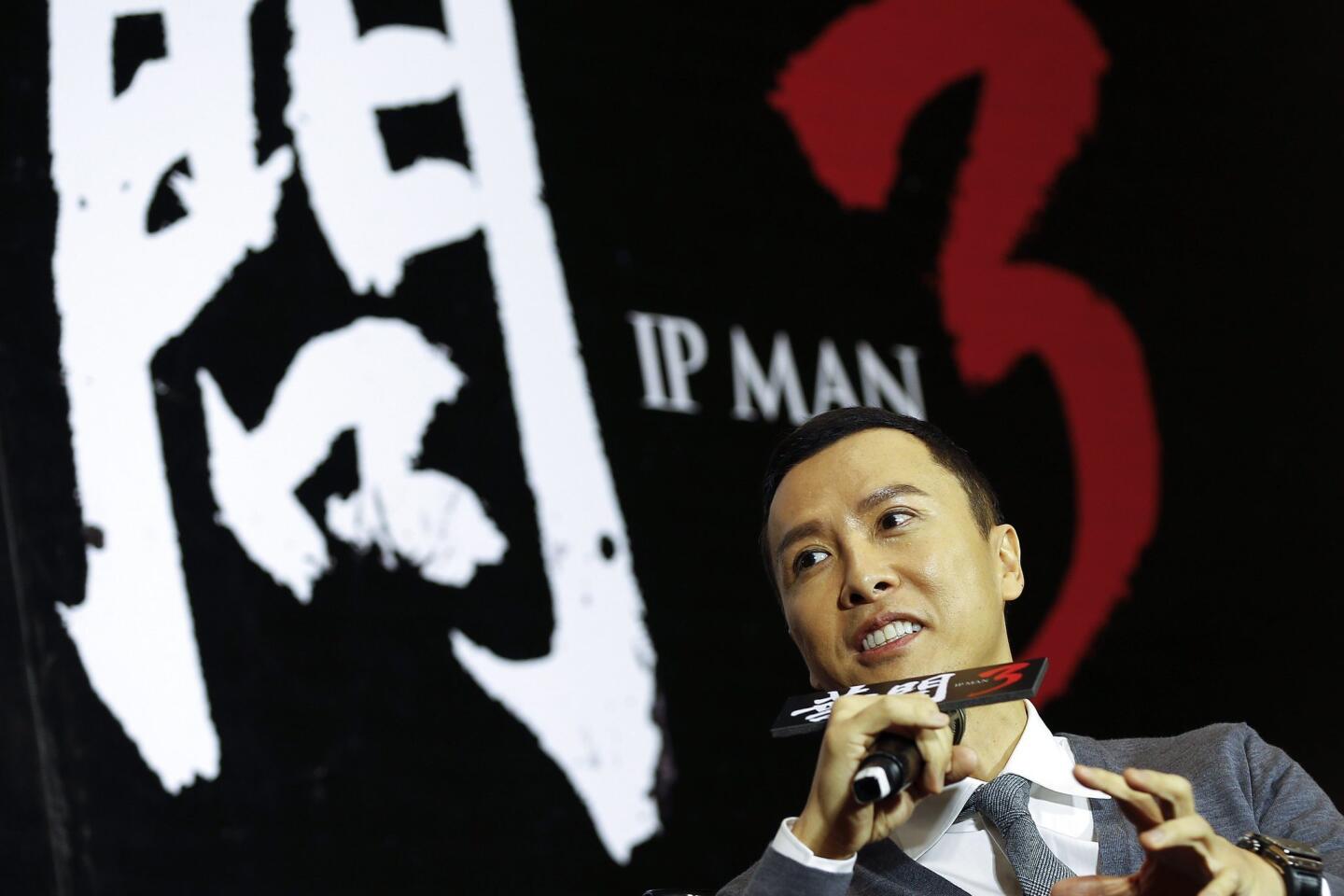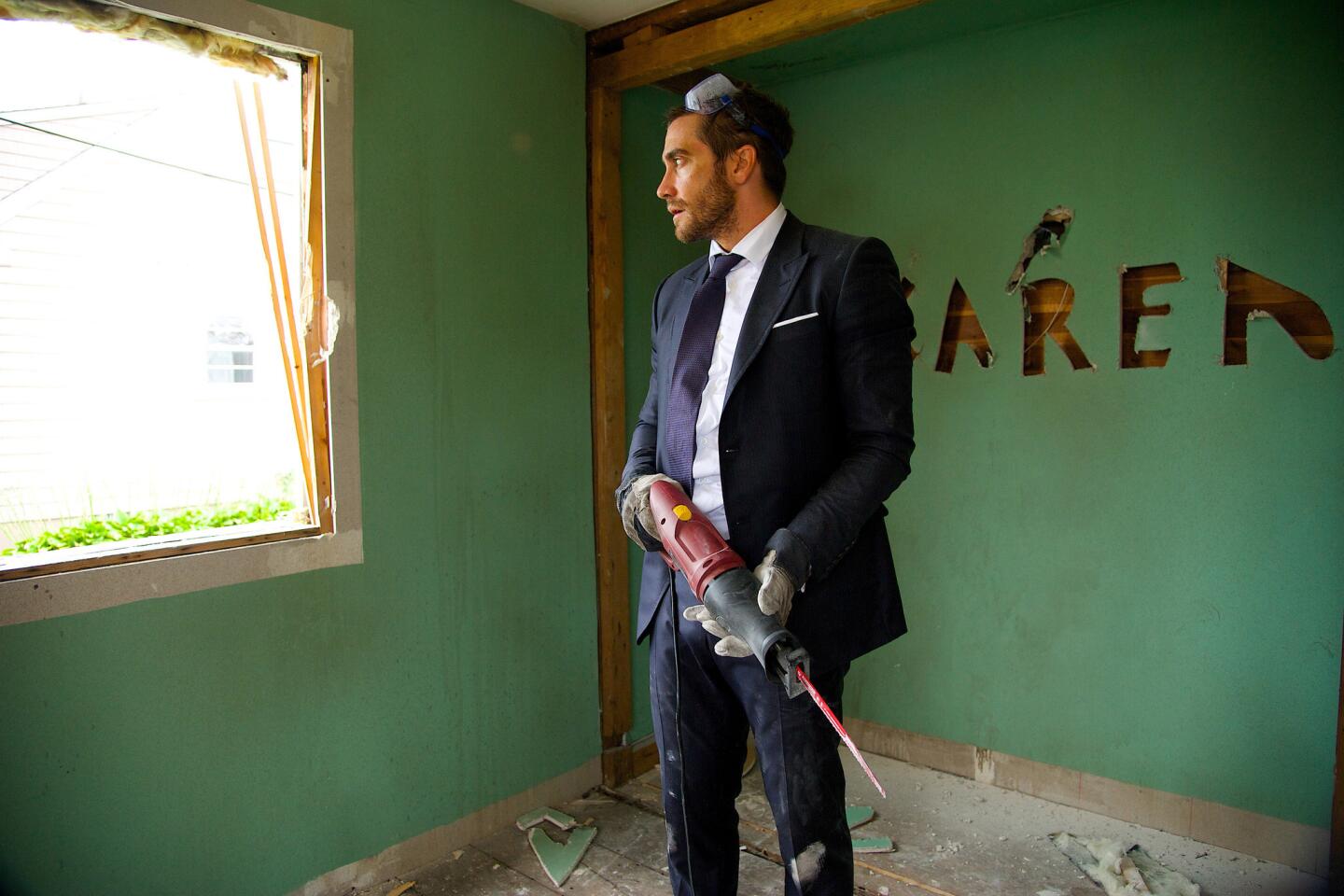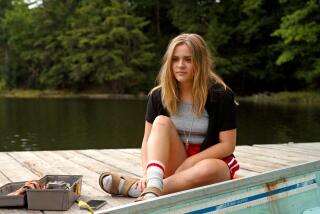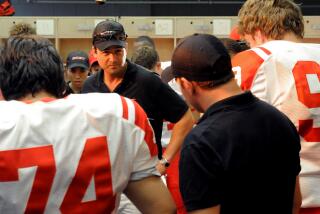Movie Sneaks: ‘Boyhood’ director Richard Linklater puts his spin on a sports film with ‘Everybody Wants Some’
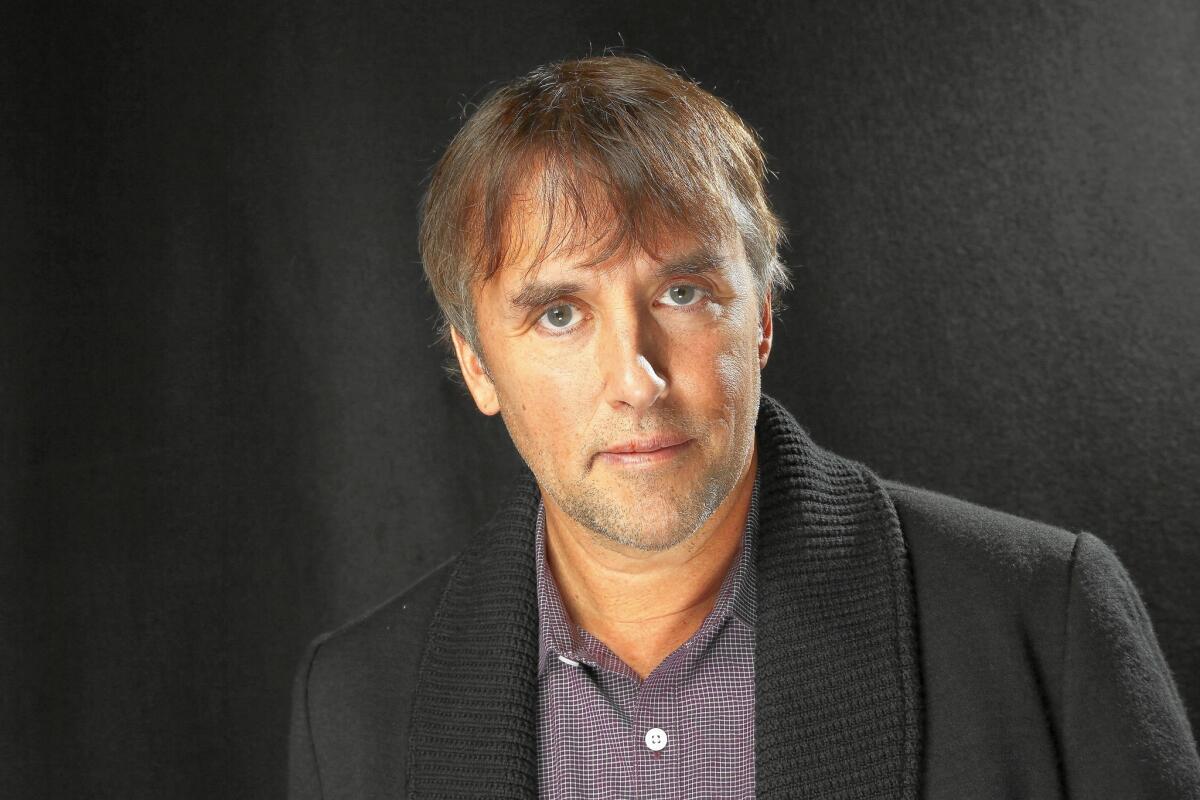
- Share via
When film fans last saw the hero of a Richard Linklater movie, he was embracing his newfound freedom on the first day of college.
What happened to “Boyhood’s” Mason after that, however, remained a tantalizingly open question.
The answer arrives with “Everybody Wants Some,” Linklater’s latest film, out from Paramount on April 15 after opening South by Southwest. It follows the quietly confident Jake (Blake Jenner) at the start of college, picking up spiritually where “Boyhood” left off — even if it zaps back to 1980 and a rather different Texas environment.
FULL COVERAGE: 2016 movies guide
“I remember filming the last scene of ‘Boyhood’ and telling the actors I have a movie that starts right where this ends,” Linklater said. “And this movie does. Though if Mason is the part of me that’s the more sensitive artist, Jake is the carousing, drinking, aggressive, extroverted guy, the pre-Enlightenment guy. He’s more fun, in a sense.”

Or put another way: If “Boyhood” was a portrait of the artist as a young man, “Everybody” is a portrait of Linklater as a young man.
The director, after all, was a star baseball player as a teenager, at 19 holding far more of a notion to play for the Astros than win an Academy Award. (He was on athletic scholarship at Sam Houston State.)
Linklater draws heavily from his memories of that time — the camaraderie, the rituals, the single-minded pursuit of sex — to craft his new tale. “Everybody Wants Some” is a character-driven comedy — a talkie, funny, hang-out-y kind of movie that embodies, perhaps more than any other Linklater film in years, the director’s jangly early period that yielded gems such as “Dazed and Confused.”
It turns out that movie is a forerunner of “Everybody Wants Some” too. In “Dazed,” Mitch Kramer was a freshman high school pitcher circa 1976, newly indoctrinated in the ways of an alien school environment. Four years later, Jake is who Mitch could have become — a freshman pitcher who must (re)learn the ways of a new athletic-academic realm.
Through Jake’s eyes, we’re led through the first few days of the year at a fictional Texas university before the pressures of school--and the season--get under way.
“In high school people carve out a creative space, but it’s always on the edge of conformity and confinement,” Linklater said. “And then you go off to college and there’s suddenly all this freedom — it’s an absolute notion of freedom. You can drink or eat whatever you want and spend the night at someone’s apartment, take class seriously or not seriously, get away with whatever you want to get away with.”
He continued, “I remember thinking at the start of college, ‘Oh, my God, everything I do is my own choice.’ And what you do with that and how you socialize within a group that’s also doing that is just really interesting to explore.”
There’s no shortage of characters within that group here. Among them is hyper-competitive slugger McReynolds (Tyler Hoechlin), swaggering Jake best bud Dale (J. Quinton Johnson), country-hick outcast Billy Autrey (Will Brittain), and the mystical Bill Lee-esque stoner Willoughby (Wyatt Russell), the last of whom, in a bong-side speech, offers one of the clearest articulations of the director’s vision of art and outsiderness. Willoughby (like many characters, he is a composite from Linklater’s own collegiate team) leads several comically absurdist discussions, including a hilarious one about mind-reading, sharks and cereal. This may be the first baseball movie in which the word screwball refers to something other than a Fernando Valenzuela pitch.
As it happens, the film really isn’t about baseball at all. One would hardly be spoiling the movie to say that there’s only one scene on a baseball field, and it hardly offers the genre’s usual arcs. “Everybody Wants Some” is a sports movie, Linklater style.
“It was a challenge really — how to make a plotless movie work,” Linklater said. “It’s all atmosphere and character and energy. From the beginning you don’t know what’s going to be resolved. And in a way it doesn’t matter. It’s just a moment in time.”
In that sense, one can see the DNA of so many Linklater movies, whether “Boyhood” or “Dazed” or the “Before” movies — the idea that people, whatever life stage they find themselves in, have distinct habits, challenges and goals that are important simply because they seem very large to them at that moment.
Extroverted athletes also allow Linklater to investigate some more universal themes, and he runs them down like a liner in the gap. As they experience this early independence, the young men (mostly; there are a few women, treated with varying degrees of respect) are setting up their social codes, allowing the movie to contemplate masculinity, community and identity.
See more of Entertainment’s top stories on Facebook >>
In one touchstone scene, after heading to a disco, a country bar and a punk show within the space of a couple of nights, Jake asks a member of the posse if it’s OK to keep shapeshifting like that. He’s told that’s what being young is — or, in any event, that’s what will help them get laid. (To achieve a rapport among cast members, Linklater worked with a group of young and in some cases even first-time actors, their chemistry honed over weeks of rehearsal and relaxation at the filmmaker’s rural retreat outside of Austin.)
Like so many things Linklater, the director chose to do make this movie on his own terms. He eschewed the big Hollywood offers that come with award-season darlings, choosing instead the loose rhythms and semi-autobiography of a passion project he has tinkered with for the better part of a decade. (“Everybody” is in fact one of several long-gestating scripts he hopes to get made in this mid-career, awards-decorated phase.)
Linklater in his films has tended to look back, but rarely more than a certain number of years. The time that elapsed between the period of “Dazed” and when he made that movie was 16 years. The difference between his age and the characters in the “Before” movies is a little over a decade. Even “Boyhood” featured a father who, later in the film, is not that much younger than Linklater himself was when he made it.
In “Everybody,” though, Linklater, now 55, is jumping back 35 years, depicting characters a full generation younger than he is.
“It was a challenge to me. Like, ‘Wow, I’m in my 50s, can I still make a youthful ensemble?’ I mean, Technically these guys are my daughter’s age,” he said, referring to “Boyhood” star Lorelei. “It was almost a stunt to see if I could do it.”
He paused. “But then, I think I’m also better at it because of what comes with age and experience. I’m more relaxed, anyway.”
More to Read
Only good movies
Get the Indie Focus newsletter, Mark Olsen's weekly guide to the world of cinema.
You may occasionally receive promotional content from the Los Angeles Times.
